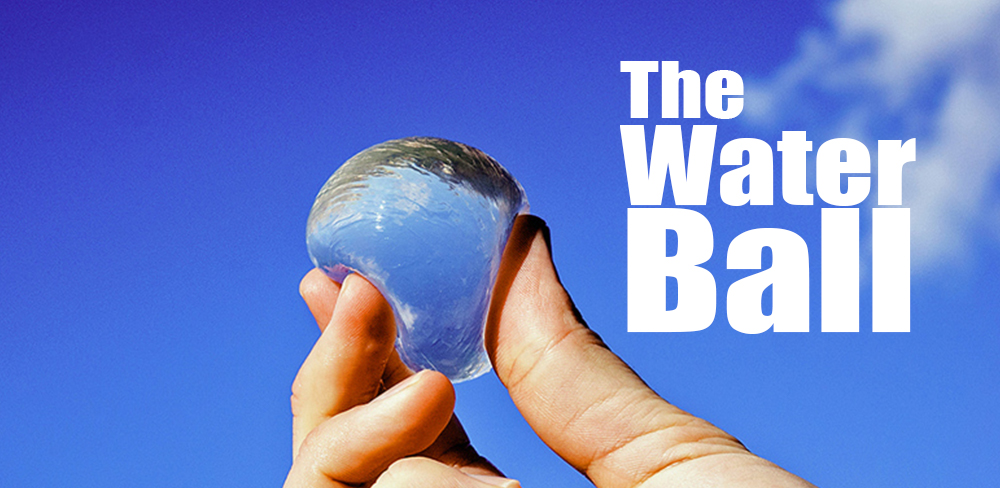The Water Ball
Also known as the’ Edible Water Bottle’ or by its official name ‘Ooho’, the water ball is said to be the answer to resolving the plastic bottle pollution that our world currently faces.
Created by a company called ‘Skipping Rocks Lab‘, the main aim of the product is to completely replace the traditional plastic bottle and instead use a completely edible material to hold the water. You simply pop the whole thing in your mouth and swallow the whole thing!
What is it made from?
According to the London based inventors, the ‘Edible Water Bubble’ is made from materials extracted from plants and seaweed. This is also much cheaper than using plastic. The vision of the company is to not only use this material to contain water but to also use it for soft drinks, spirits and cosmetics.
Does the water ball decompose in a natural environment?
If you were, for example, to pierce the water ball, drink the water and throw the remaining material into a bin, the material is said to decompose after 6 weeks. Not bad when you compare this to plastic bottles that would take 700 years to decompose.
Where can I buy these from?
We have searched high and low to try and buy some of the water balls but it looks like the product is still in its development stage. The crowdfunding for the product started in 2017 and from todays date they have raised £848, 850. You can see more on their crowdfunding page
Is it a Game Changer?
We think it could be an incredible breakthrough for reducing the amount of plastic bottles and containers that are disposed of everyday. We can see the benefit of those who need a quick thirst burst and the fact the material is edible really does put this product at the forefront of waste management technology. However, we do wonder how the inventors of ‘Ooho’ are going to tackle keeping the water balls clean and hygienic during transit and how much packaging will be needed to prevent the balls bursting all over the place.
Apart from that, we really hope that ‘Ooho’ is a success and a true beginning to eliminating the use of plastic bottles.


